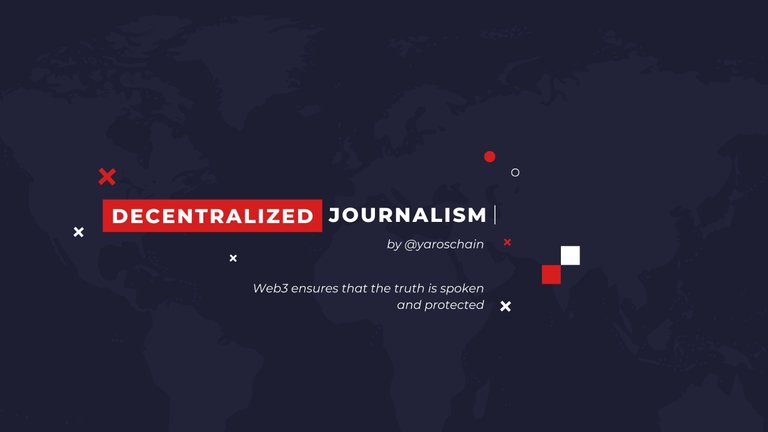
We are aware that blockchain technology and the web3 have immense potential to redefine the way we interact in our daily lives:
- Cryptocurrencies
- DeFi
- NFTs
- DAOs
- Decentralized Social Networks
- Decentralized Digital Identity
- Metaverse
- Decentralized Markets
- Decentralized Voting Systems
- Decentralized Journalism
- Supply Chain Management
These applications and platforms are just the tip of the iceberg, and while we pay special attention to those related to finance and economics, blockchain technology and web3 have allowed the truth to come out.
Journalism and Blockchain
In 2017, Maria Bustillos led an audacious experiment: creating
publications on a blockchain-powered platform called Civil. When Civil closed its doors, Bustillos and her team didn't give up; they were behind Brick House.
Brick House is a media cooperative without owners, executives, investors, and advertisers. Each publication owns a single share and cannot sell it outside the company. The idea is to protect the freedom of the press from hostile takeovers, an example of decentralized journalism.
Although Brick House has no cryptographic component, Bustillos continues experimenting with blockchain in his digital magazine Popula.
Decentralized journalism
Decentralized journalism protects freedom of expression and ensures that corporate or political interests do not silence voices.
Using technology to protect freedom of expression is a return to journalism's original spirit, which is to inform the public without outside interference. Hence, decentralized journalism is more than just a trend; it is a necessity in a world where information is power, one that web3 also makes possible.
And even though we know the advantages of its adoption, it is worth mentioning them again:
Preservation of History: the immutability of the
blockchain guarantees that articles and stories cannot be altered or deleted. This ensures that future generations have a proper record of current events.Reduction of Disinformation: with the ability to
the authenticity and origin of news, the spread of false or manipulated news will be significantly reduced.Empowerment of Independent Journalists: journalists will no longer depend on prominent media outlets or sponsors to publish their work. This can lead to a greater diversity of voices and perspectives in journalism.
Innovative Monetization Models: beyond advertising and subscriptions, blockchain enables monetization models such as micropayments and tokens, which could result in more sustainable journalism.
We know that decentralization, transparency, and security are redefining many industries, and platforms like Civil and Popula show us that journalism is not an exception.
Web3 ensures that the truth is spoken and protected; it is another link in creating, distributing, and consuming journalistic content.




